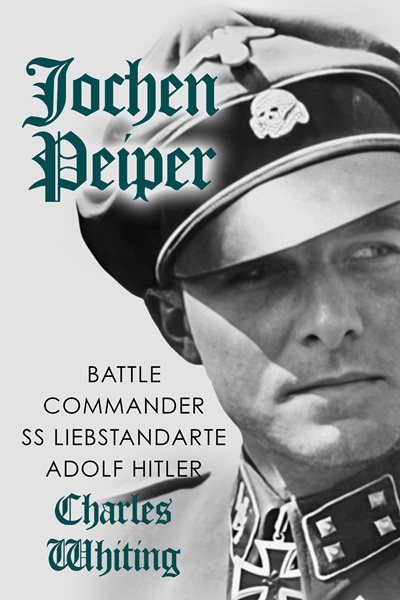
A fascinatingly detailed biography of one of the most terrifying men of the Second World War — German Panzer commander and convicted war criminal Jochen Peiper.

A fascinatingly detailed biography of one of the most terrifying men of the Second World War — German Panzer commander and convicted war criminal Jochen Peiper.
Perfect for fans of Danny S. Parker, Michael Reynolds, Patrick Agte, and David G. Williams.
In January 1935, twenty-year-old Jochen Peiper took an oath of allegiance, pledging himself to the new Führer and becoming a member of his elite bodyguard, the SS Leibstandarte Adolf Hitler. The young cadet quickly stood out among his contemporaries for his arrogance and high intelligence. He was ambitious and possessed a strong will of his own — qualities valued at the SS cadet school, which promoted independence and flexibility in its officers to lead men from the front. These qualities would make Peiper one of the most prominent young commanders of the Second World War.
After beginning his service in Hitler’s bodyguard, Peiper was selected to become the personal adjutant to Heinrich Himmler. As predicted, on returning to active combat, he rose quickly through the ranks, becoming a tank commander in the 1st SS Panzer Division. He served on both the Eastern and Western fronts, first as a battalion commander and later as a regimental commander. He was featured on the covers of Nazi Party magazines, mentioned in Wehrmacht war reports, and awarded the Knight’s Cross. At the age of 27, he became the youngest regimental colonel in the Waffen SS. However, no matter how enigmatic his personality or how glittering his early career, Peiper is remembered by history as a convicted war criminal, sentenced to death for the actions of Kampfgruppe Peiper in the massacre of unarmed American soldiers at Malmédy, France, in 1944, and civilians in Boves, Italy, in 1943.
Charles Whiting draws on his extensive personal knowledge of the period and exhaustive research to present the facts about the events and the individual. Correspondence and interviews with people who knew Peiper and witnessed the events described enable Whiting to write a vivid and authoritative account.
The true facts behind the events that led to Peiper’s conviction and subsequent imprisonment may never be fully known. What is certain is that, despite serving his sentence, he was brutally murdered in his home in France in 1976 by those who believed he still had a debt to pay. This book is a must-read for anyone with an interest in the controversial military leaders of the Second World War and the events that followed in its immediate aftermat